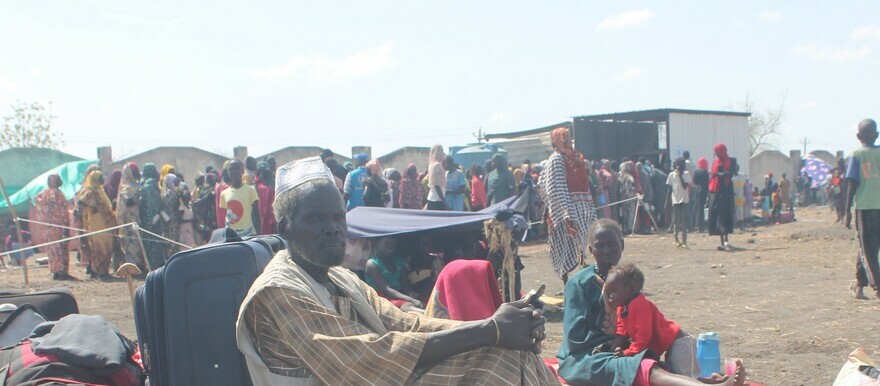The Ministry of Humanitarian Affairs said Monday that it has set up plans to intensify the relocation of returnees fleeing the conflict in Sudan, transporting them by air, road and river transports.
Addressing a press conference at the ministries complex in Juba, the minister for Humanitarian Affairs, Albino Akol Atak, revealed that plans are in motion to transport 180,000 returnees monthly to their respective home areas.
He shared that his ministry had already transported 6,000 people last week out of a 10,000 target.
“We have now taken 6,000, the general plan every month that we are doing is to transport 180,000 people that we are going to transport every month up to now, we have taken 6,000 and we are targeting that figure and we are going ahead only through Paloch and Renk,” Akol explained.
He said plans have already been set to transport the returnees by air from Upper Nile to their home areas up to Juba.
“We are considering river transportation. We have gone far in that assessment that we will be taking a lot of people from Renk up to Juba, but not everybody is going to Juba but we will take those people who are going, for example, Upper Nile they will be taken to Malakal, and then the rest continue the rest Bentiu, Pagak, Shambe where our trucks will be waiting for those who will be going to other areas like lakes State and other areas in Bahr el Ghazal and then the rest will continue some will be dropped to Bor and some will come up to Juba,” the humanitarian minister disclosed.
Akol revealed that since the conflict started in Sudan, the country has so far received about 50,000 South Sudanese returnees who had been living in Sudan.
Akol stressed that government will not set up displaced people’s camps for returnees from Sudan but will opt to transport them to their home areas.
He explained that Sudanese refugees will be taken to existing refugee camps within South Sudan on condition that the number of Sudanese refugees in any specific area is not too high. Akol said that there is an option to set up new refugee camps for Sudanese refugees if the numbers are high.
Since the outbreak of the fighting on 15 April, over 32,500 people have been registered crossing the border from Sudan into South Sudan, according to official reports.
The real numbers are likely to be higher as some people entered the country without registration, with the average number of people arriving daily recorded at 3,500 individuals.
Most of those arriving are South Sudanese returning home as well as Sudanese seeking asylum, Eritrean refugees, Kenyan and Somali migrants, and other third-country nationals.




